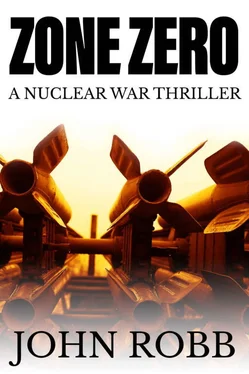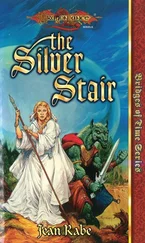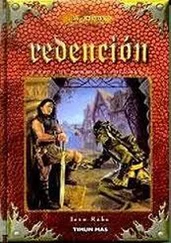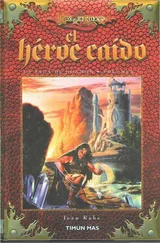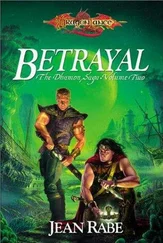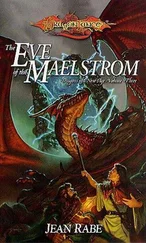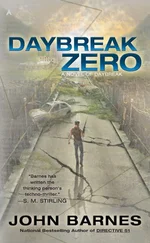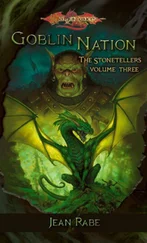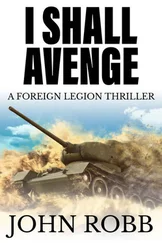“What—what if they can’t get the message through.”
D’Aran smiled reassurance.
“The High Command will manage that, mon ami . If they can’t make radio contact, they’ll send a plane. But that is the least of our worries. The main task at the moment is to get our own wireless working.”
Keith touched his hand. He said: “Let me go with you, mon officier . You wouldn’t understand. But… but I don’t want to have to wait here while you’re alone with those thugs. Gallast is clever. Anything could happen…”
“Nothing can happen. But come if you wish, legionnaire. Now—.four men will take down the barricade!”
The iron beds were dragged away from the door. D’Aran and Keith unconsciously braced themselves when only the bolt stood between them and Gallast. D’Aran took a brief look round. Then he pulled back the bolt.
Gallast and his six men were waiting. Gallast came forward.
“There’s no time to lose,” he said. “I, too, understand wireless. I will help you.”
“You will stay here,” D’Aran told him. “And so will your men.”
They were about to push past when Keith pointed to Professor Daak.
Daak was still on the floor. But he was now conscious. And he was making weak movements with his feet, as if trying to stand.
“I’ll carry him to your room,” Keith said.
Without much difficulty he got the professor over his shoulder and followed D’Aran down the corridor.
They paused when about to enter the room. The place had assumed an even greater appearance of chaos. The extra bed had taken most of the remaining floor space. The magazine trapdoor was open. Papers—after being carefully read—had been thrust from the desk to the floor. And the radio table was a shambles of broken glass. Gallast had done a typically thorough job on the valves.
Keith lowered Daak on to his bed. The professor was recovering from his swoon. He sat upright and watched D’Aran open a desk drawer. When he saw the cartons of spare valves he blinked with hope and curiosity.
D’Aran carried the cartons to the radio table and there he made a quick but careful inspection. When he had finished he told Keith: “I think we are fortunate.”
He set to work. He removed the broken valves from their sockets while Keith unpacked the replacements and placed them gently at his elbow.
Daak managed to get to his feet and watched intently. The atmosphere was heavy with expectancy.
At first none of them saw the score of brown men in tattered robes who easily climbed the low walls.
They did not see the Arabs gather on the ramparts and stare in bewilderment round the apparently empty fort.
No one saw them until a scream of panic came from one of Gallast’s men. It was followed immediately by a shot from a Luger.
One of the Arabs—an aged man with a white beard-spun slowly on his heels before falling into the compound.
For a few seconds the tribesmen stared at him with a sheer lack of comprehension. Then one of them shouted. The call was taken up. A call of mad fury. Some waved their fists at the building. But most fumbled with their ancient muzzle-loading muskets.
Keith knew exactly what had happened. So did D’Aran. To those familiar with the command area, it was obvious.
This was an itinerant Bormone trading party. One of the several groups of Arabs who roamed the area, buying merchandise from one village and selling to another. Sometimes, but not often, they called at Fort Ney and offered fresh oasis fruit in exchange for a few sous. They invariably commenced such commerce by displaying their wares to the sentries on the ramparts. But today they had found no sentries. And no sound of life, for the fort had been in complete silence as D’Aran worked on the radio. They must have concluded that Fort Ney was deserted. And, naturally enough, they had decided to investigate.
Had any of the garrison been the first to see them he would have realised this. But it must have been one of Gallast’s men who had chanced to look outside.
And, in his ignorant panic, he had fired. He had killed.
Keith whispered: “Oh, my God, the lunatics…” Then, being nearest the door, he raced into the passage. So far no other shots had been fired from Gallast’s party. But they were crouching near the outer door, gripping Lebels and Lugers.
Keith screamed: “Don’t shoot… they’re harmless… they…”
But at that moment a volley of round shot came from the Arabs. The aim was wild. The slugs flattened against the outside wall.
But it was enough for Gallast. He turned a contorted face at Keith.
“Harmless, did you say. I don’t believe you! I have a quick way of dealing with such riff-raff. Watch, legionnaire, and you will learn!”
Before Keith could appreciate his intentions, Gallast had stooped over the pile of grenades. As he straightened, he held one of them high in his right hand.
Keith did not attempt further argument. He almost threw himself at Gallast. He aimed a swinging left hand jab at his kidneys. If it had connected, Gallast would have dropped. But, as the punch travelled, a Luger butt came down on his wrist. Keith’s entire arm became numb and momentarily useless.
He stood helpless as Gallast extracted the pin with his teeth.
He screeched, “Don’t… Don’t…” as Gallast hurled the grenade through the outer door. Then, instinctively, he rushed back to D’Aran’s room. The grenade had a five-second fuse. Five seconds to give warnings.
As he ran he shouted: “Get under the window…”
But, as he crashed through the doorway he saw that D’Aran was already under cover. So was Daak. They had seen the grenade land in the centre of the compound.
Keith dropped flat as a harsh explosion, like the rattling of sheet iron, tore the air.
Almost immediately there was a cacophony of hideous sounds. The screams of the tribesmen. The echoing slash of hot shrapnel against the walls. And, worst of all, a shattering of wood and-glass which told of the end of the radio.
The explosive effect of a hand grenade is lateral. The jagged splinters of metal fly outwards, but only slightly upwards. For that reason the Arabs suffered remarkably few casualties. Standing as they were on the ramparts, most of the fragments spent their energy against the wall below them.
One of their number had a foot almost sliced off. Two others were less seriously wounded about the legs. The rest escaped.
Keith saw this as he peered out of the window. Then he turned to speak to D’Aran. But D’Aran was moving out of the room. His gun was in his hand. Keith followed.
Gallast was standing by the outer door, tossing a fresh grenade from hand to hand. As he watched the huddled, temporarily paralysed Arabs, his big face reflected a peculiarly brutalised satisfaction. Beneath his ostensible polish, Gallast was a typical thug. This was the type of situation which appealed to him. The murder of semi-defenceless people, supported by only the thinnest veneer of justification, naturally enabled him to forget all other matters.
He looked with some surprise at D’Aran’s gun. Then he said: “We won’t have any more trouble with that offal, lieutenant. But I think perhaps another grenade.”
Gallast broke off as he felt a point of pressure in the centre of his stomach. It was the muzzle of D’Aran’s gun.
And D’Aran said: “Put the grenade down!”
“Lieutenant, I…”
“Put it down!”
Gallast obeyed. There was a quality in D’Aran’s voice which left no choice.
Meantime, Keith stood against the wall. He, too, was holding a Luger. He glanced at Gallast’s men. But there did not seem to be much danger of interference from them. They were moving away into the shadows.
Читать дальше
